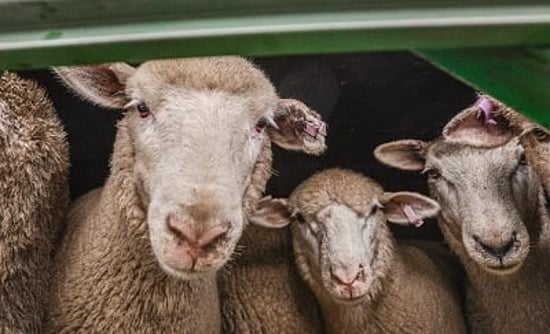
Live export mythbusting
News
Research has shown that there’s a viable and humane alternative to exporting live animals from Australia. But there seems to be a lot of misunderstanding about the trade that’s keeping it afloat.
Here are the most common myths that favour live animal exports and the facts that bust them apart:
Myth:
Middle Eastern countries won’t accept chilled or frozen meat because they insist on slaughtering animals themselves under halal guidelines.
Fact:
Australia’s halal credentials are of a high global standard and Australian producers are fully equipped to supply halal markets. Over 70% of abattoirs in Australia are halal accredited. In 2013, Australian chilled and frozen beef, veal, lamb and mutton exports to the Middle East grew by 24%.
Myth:
There’s a lack of refrigeration in Middle East importing countries.
Fact:
Australia mainly exports to wealthy Gulf countries that import a huge amount of chilled goods. Independent research in 2011 reported that 99.5% of households in UAE, Kuwait, Qatar and Bahrain had fridges, and 73% had freezers.
Myth:
Ending live export will cause thousands of Australians to lose their jobs and the economy to suffer.
Fact:
Transitioning the live export industry to the chilled and frozen meat trade will still support most jobs involved in the live export trade, such as farmers, stock hands, truck drivers and shearers. Independent research in 2009 and 2012 estimated that at least 2,200 more jobs could be created to support the increase in domestic meat processing.
World Animal Protection has stated, year after year, that there is a clear solution to the live animal export problem. An alternative way forward that addresses both animal cruelty and economic factors.
It's time to end live export
Live export
We have worked tirelessly to raise awareness about the immense suffering of millions of sheep and cattle in the live export trade.
Farm animal cruelty
From painful mutilations to rough handling and slaughter at a young age – animals on factory farms suffer on many levels.


